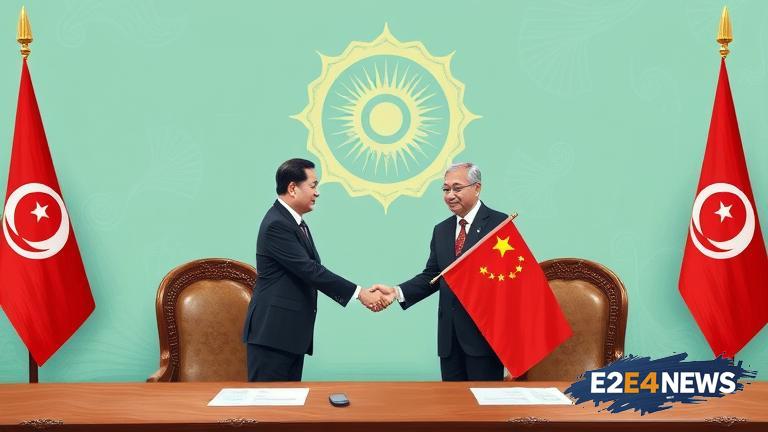China and Turkmenistan have recently underscored the importance of bolstering educational cooperation, recognizing the pivotal role it plays in fostering mutual understanding, cultural exchange, and economic development. This renewed commitment to educational collaboration is set to pave the way for increased academic exchanges, joint research initiatives, and the sharing of best practices in education. The two countries have identified education as a key area of cooperation, with a focus on promoting people-to-people diplomacy and enhancing the quality of education in both nations. By strengthening educational ties, China and Turkmenistan aim to create a more conducive environment for the exchange of ideas, cultures, and values. This, in turn, is expected to contribute to the deepening of bilateral relations and the promotion of regional stability. The emphasis on educational cooperation is also seen as a strategic move to enhance the competitiveness of both countries in the global arena. Furthermore, the collaboration is anticipated to yield benefits in areas such as science, technology, engineering, and mathematics (STEM) education, as well as in the humanities and social sciences. The exchange of students, scholars, and educators is expected to facilitate the transfer of knowledge, skills, and expertise, thereby contributing to the development of a more informed and enlightened citizenry. In addition, the partnership is likely to lead to the establishment of joint research centers, institutes, and universities, which will serve as hubs for innovation and intellectual inquiry. China and Turkmenistan have also expressed their intention to explore opportunities for cooperation in the field of vocational education and training, with a view to enhancing the employability of graduates and addressing the skills gap in the labor market. The collaboration in education is also expected to have a positive impact on the economic development of both countries, as a more educated and skilled workforce is better equipped to drive innovation, entrepreneurship, and growth. Moreover, the partnership is seen as a means of promoting cultural understanding and exchange, as well as fostering greater people-to-people diplomacy between the two nations. The emphasis on educational cooperation is also reflective of the growing recognition of the importance of soft power in international relations, as education is increasingly seen as a key instrument of diplomacy and a means of promoting national interests. In conclusion, the decision by China and Turkmenistan to strengthen educational cooperation is a significant development that holds great promise for the future of bilateral relations and regional cooperation. As the two countries move forward with their plans to enhance educational ties, they are likely to encounter numerous opportunities for collaboration and exchange, which will ultimately contribute to the creation of a more interconnected and interdependent world. The partnership is also expected to yield benefits for the global community, as the exchange of ideas, cultures, and values between China and Turkmenistan is likely to promote greater understanding, tolerance, and cooperation among nations. Ultimately, the strengthening of educational cooperation between China and Turkmenistan is a testament to the power of education to transform lives, communities, and societies, and to promote a more just, equitable, and peaceful world. The collaboration is also expected to lead to the development of new curricula, programs, and courses that reflect the needs and priorities of both countries, as well as the establishment of joint degree programs and exchange initiatives. Furthermore, the partnership is likely to facilitate the transfer of technology, expertise, and best practices in areas such as education policy, planning, and management. In the long term, the strengthening of educational cooperation between China and Turkmenistan is expected to have a profound impact on the social, economic, and cultural development of both countries, as well as on the regional and global landscape. As the two countries continue to work together to enhance educational ties, they are likely to encounter numerous challenges and opportunities, which will require careful planning, coordination, and implementation. Nevertheless, the potential benefits of the partnership are substantial, and the decision to strengthen educational cooperation is a significant step forward in the development of bilateral relations and regional cooperation.
